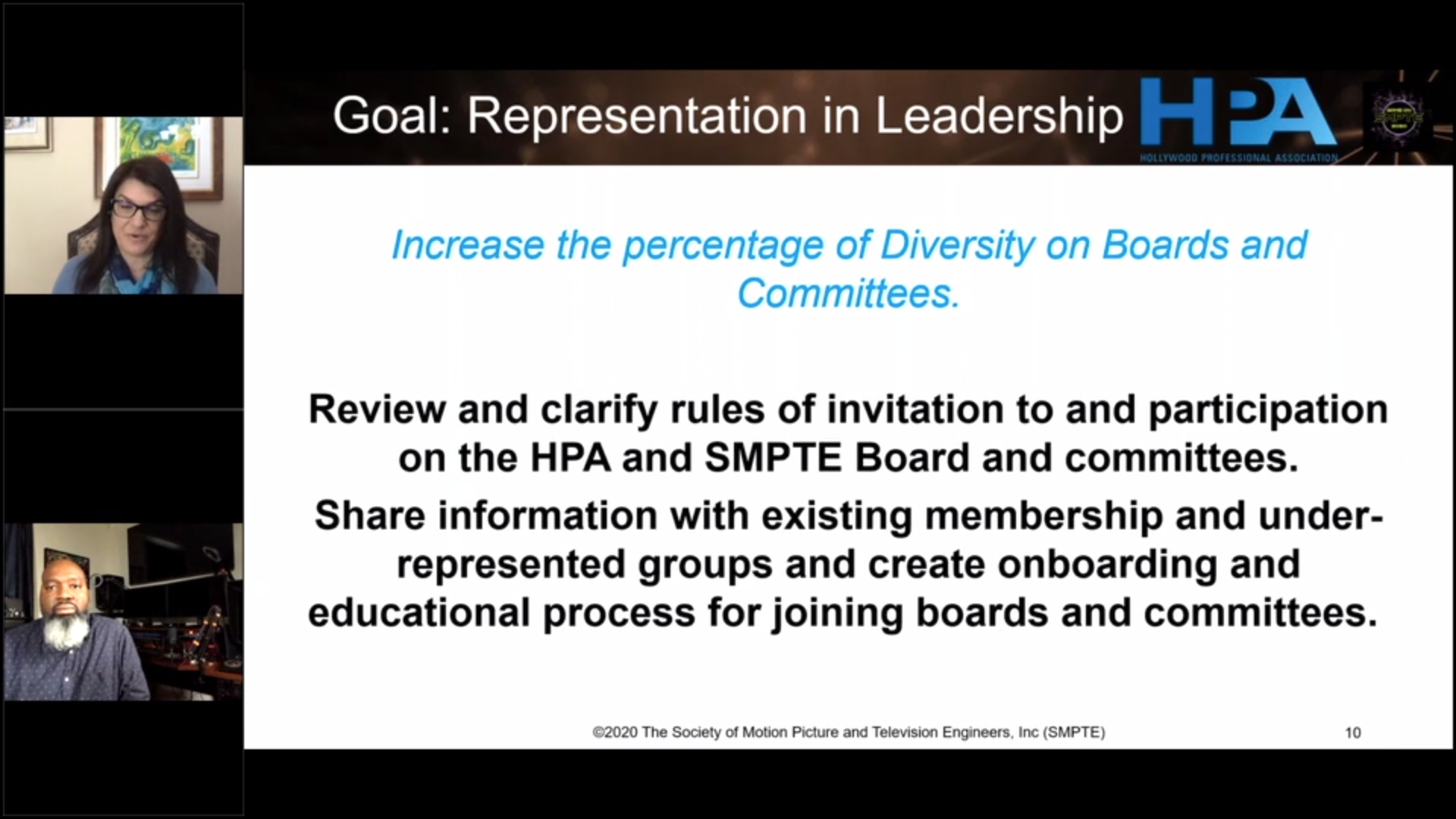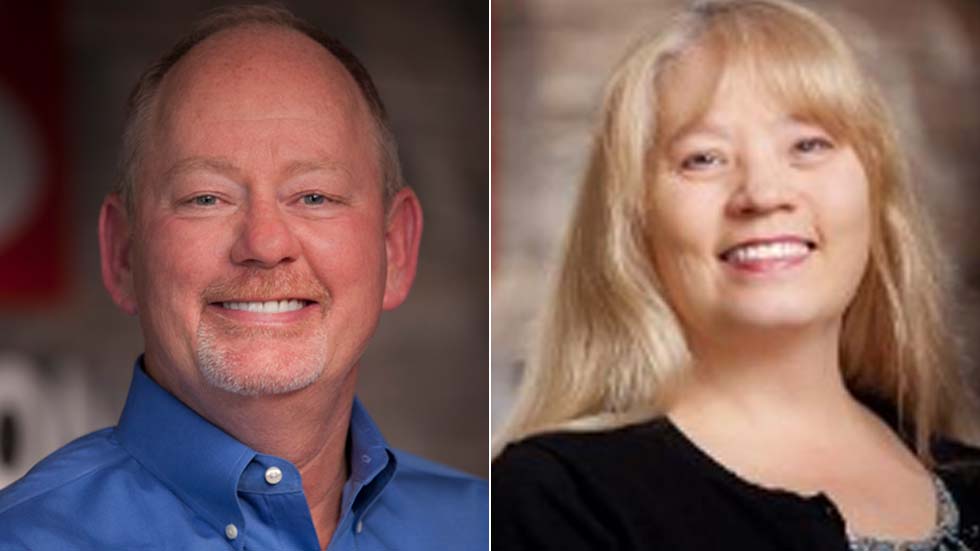SMPTE, HPA Outline Efforts to Increase Industry Diversity
SMPTE2020 session discusses ways to institute changes from the local levels to the top of organizational leadership

Taking inspiration from a Mother Teresa quote, SMPTE and HPA, in response to the racial and social justice efforts taking root across the world, are working to “cast a stone across the waters to create many ripples” when it comes to improving industry diversity and inclusion efforts.
To do so, the two organizations are working to inspire the next generation of industry leaders, placing a particular emphasis on broadening the inclusion of disproportionately under-represented communities at all levels. Planning and setting a goal to achieve this was the focus of the SMPTE2020 opening day session “SMPTE/HPA Joint Initiative: Inclusion, Equity and Acceptance.” Renard Jenkins, vice president, Content Transmission at WarnerMedia and Eastern Region Governor for SMPTE, and Kari Grubin, HPA board member and senior media entertainment executive for HPA, led the presentation.
SMPTE and HPA’s joint effort has the stated vision to “be a lighthouse and leader for the global media and entertainment industry to create a safe, diverse and inclusive place for all to succeed.” While efforts have been made in the past through such programs like the Women in Technology Luncheon and the Young Entertainment Professional Orientation, SMPTE and HPA have outlined a series of goals for this year to begin to push these efforts to a higher level.
First looking internally, SMPTE and HPA will work to align their policies and goals for increasing membership inclusivity and corporate representation, because as Grubin stated, “we have strength by working together.”
There will also be a concerted effort to increase the percentage of diversity on SMPTE and HPA’s boards and committees. According to Grubin, the organizations will work to ensure 100% transparency on how members can join a board or committee by sharing the appropriate details and opportunities in an unbiased way.
Building partnerships with diversity groups will also be a key initial goal, including already established industry-related diversity groups, as well as Historically Black Colleges and community colleges. As Grubin said, the ultimate goal is to find the groups who had previously not had access to the organizations’ information and then bring that information to them “so that we can inspire an inclusive and equal representation across all groups.”
Increasing the diversity of event programming and awards rounded out the list of goals for the year. While people are encouraged to be as inclusive as possible when making submissions, SMPTE and HPA plan to review each event and the guidelines and rules associated with them to ensure that inclusive language is present as well as to consider adding requirements on presentation formats so as to give as many people a voice as possible. Building off the hope for expanded partnerships, Grubin says that they would also encourage these groups’s members to submit for presentations and awards.
The professional video industry's #1 source for news, trends and product and tech information. Sign up below.
“Hopefully, in not too long of a time, we will have a really easy pathway for people to participate,” said Grubin.
While these are the broad goals, Jenkins detailed actions that are already underway to help achieve them. One such effort is the review of standards to remove racially loaded terms—like “master-slave” or “whitellist-blacklist”—and replaced with more neutral terms like “primary/secondary” and “approved/non-approved.” Jenkins spoke on how he has avoided the use of the term “master-slave” because of how it makes him feel uncomfortable and excluded. This is an example of the organizations’ efforts to make sure everything is done with an inclusive brush, he said.
Again, Jenkins spoke of the effort to work with colleges and universities, including HBCUs, to help enlarge and diversify the industry’s talent pool by including them in all of SMPTE and HPA’s educational and outreach efforts. Similarly, they are attempting to cast a wider net with job boards for internships, apprenticeships and employment opportunities to ensure a larger source of applicants.
These efforts, while primarily focused on the United States at the moment, will be expanded to SMPTE Sections worldwide, Jenkins explained. But perhaps the most important effort, he added, is working with local levels, where he thinks can have the biggest impact on racial and gender inclusion.
Collegiate-level student chapters, which are themselves becoming increasingly diverse, are another important way to connect with interested students. SMPTE and HPA are also considering working with, or creating groups that work with high school and middle school students interested in STEM (science, technology, engineering and mathematics) and providing more information on the opportunities available to them.
Additional efforts are expected to include reaching out to Sections for ideas on how to raise funds to support these efforts and reinstituting the SMPTE Student Film Festival.
Jenkins says he has never gone to a SMPTE or HPA conference where he hasn’t found individuals who wanted to help advance these goals.
“We want to actually cast that energy out into the world, where we’re actually helping people to see that our industry is inclusive, but also to see that you can have a career in this industry no matter what gender you are, no matter what you look like, no matter what your age is and no matter what your particular abilities are, whether they are physical or mental,” Jenkins said. “We want to make sure that if you are a person with diversabilities that you’re welcome too.”
To register for SMPTE2020, visit 2020.smpte.org/
